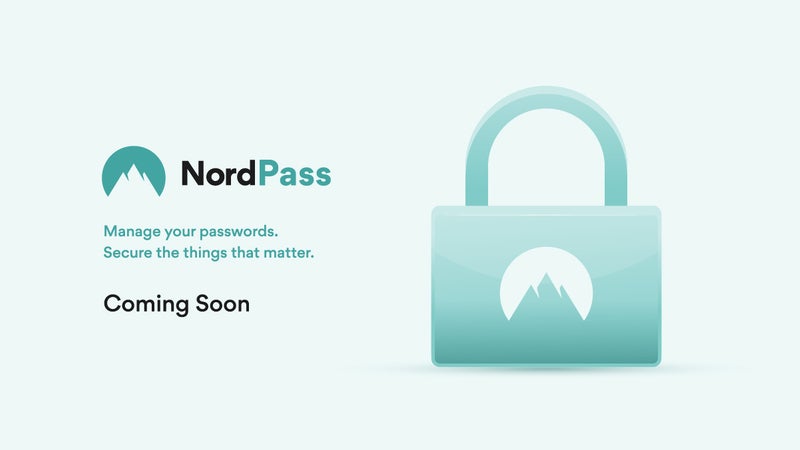NordPass is the new LastPass rival from NordVPN

NordVPN is looking to take on password manager titans like LastPass and Dashlane with its new NordPass software.
NordVPN is a popular VPN service so a move into protecting your passwords seems like a logical step. NordPass will manage your passwords by storing them beneath layers of security – also allowing you to generate secure passwords instead of coming up with your own.
Related: Best password manager
The new password manager from NordVPN utilises “zero-knowledge encryption”. The term means you hold the key to the encryption of your passwords – preventing even NordVPN employees from accessing your passwords on their servers.
NordPass uses something called Advanced Encryption Standard with Argon 2 for key derivation. The standard is what provides security for your password data on NordPass.
Related: Best VPN
The features of NordPass seems to fall in line with the most popular password managers. NordPass will store your passwords, auto-fill them in online forms and let you create private notes.
The NordPass website touts “effortless imports” as a top-notch feature. The software will let you import your current passwords from different browsers, computers and other password managers. The site also states that the encryption used by NordPass is the same as the US Government.
NordVPN’s new password manager is currently in a testing phase. You can sign up to the beta right now. The full version of NordPass is expected to launch in Autumn 2019.
Related: Best free antivirus
NordVPN seems to be banking on customer loyalty and its wider reputation built through its VPN service to gain customers for NordPass. The NordPass website states: “Your password security starts with trust. NordPass is brought to you by the cybersecurity experts who built NordVPN – the advanced online security and privacy app trusted by more than 12 million users worldwide”.
Password managers were last in the news for not so good reasons – with a research paper claiming popular password managers all shared a common security flaw. However, the companies looked to refute the claims.

